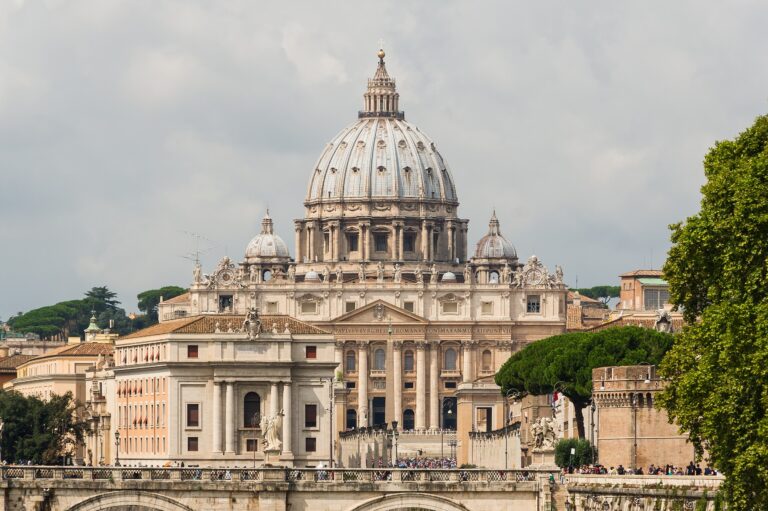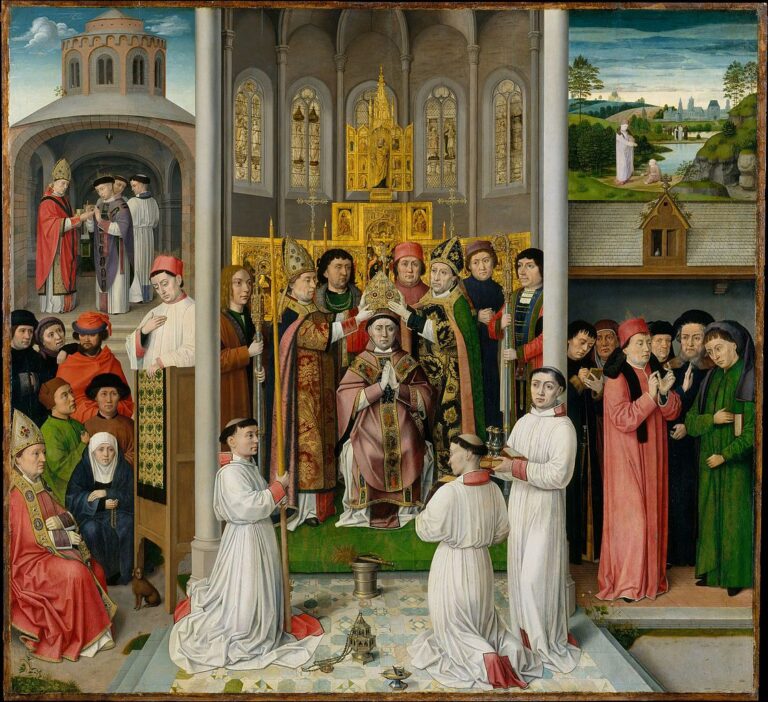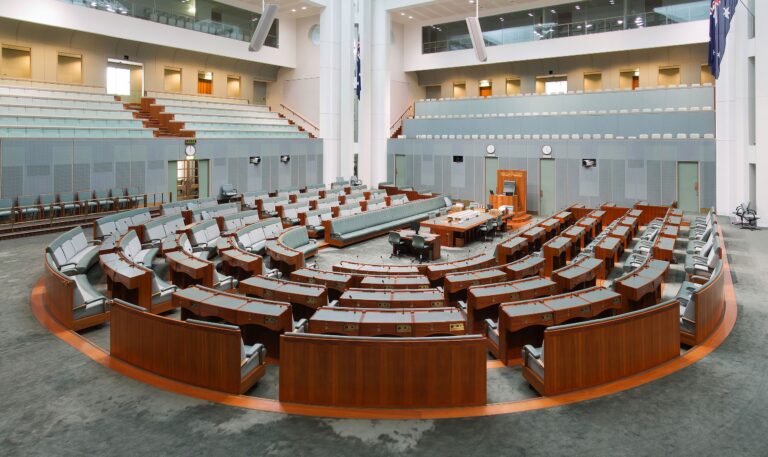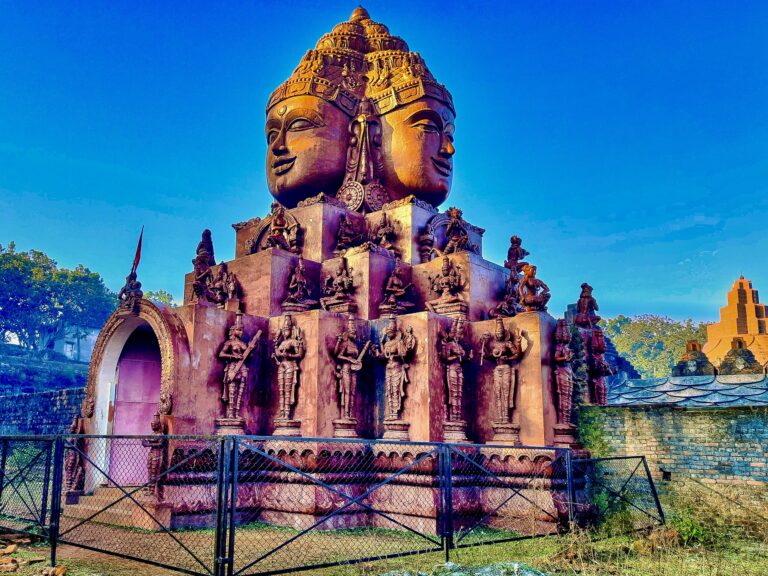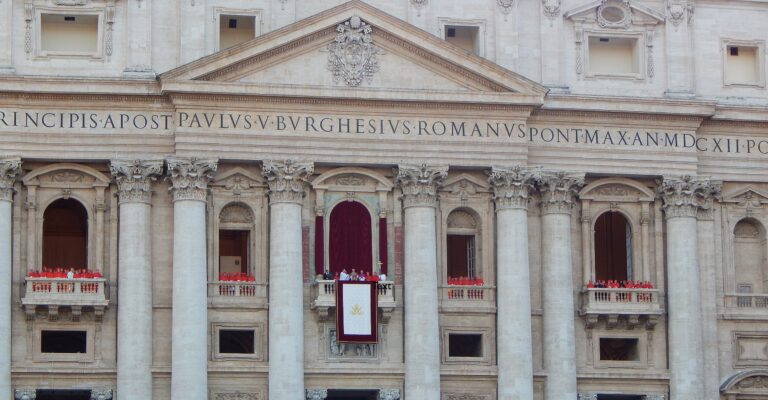
Regulation of FoRB Rights by Organized Crime in Mexico: A Real Although Largely Overlooked Issue
Teresa I. Flores
San Pedro Garza García, Nuevo León by Mexico Fotos (CC BY SA 2.0).
This article is part of our virtual symposium and essay series, “Masking Religious Freedom Violations.” Read more here.
On October 20, 2024, two people on a motorcycle shot at priest Marcelo Perez Perez’s vehicle as he left the parish of Guadalupe, located in the Cuxtitali neighborhood of San Cristobal de las Casas, Chiapas (Mexico). He died at the scene. Father Marcelo was a Tzotzil priest, defender of indigenous rights, peace promoter, and conflict mediator in different municipalities of Chiapas. This event, one of the most recent and notorious at a national and international level, is only a recent example of the current situation of violence in Mexico and demonstrates the impact that criminal activities have on the exercise of the right to religious freedom.
Explaining the complex context of violence in Mexico is a task beyond the scope of this essay. However, to understand the gravity of the situation in the country, we can rely on the analysis and conclusions carried out by organizations specialized in the subject. According to the Global Organized Crime Index 2023, Mexico ranks 3rd out of 193 countries in terms of the scope of criminal operations, with a score of 7.57. Regarding the groups that are responsible, Insight Crime registers the Sinaloa Cartel, the Jalisco New Generation Cartel (CJNG), the Carteles Unidos, groups that splintered off of the Zetas and the Gulf Cartel, and other independent groups as the ones leading drug, arms, human trafficking, money laundering and other illegal activities. Many of these groups are often working complicitly with authorities due to impunity and corruption. The AC Consultores organization estimates the presence of organized crime in 81% of the national territory, and among the states with the highest presence of organized crime include Oaxaca, Chihuahua, Edo, Mex, Michoacán, Veracruz, Jalisco, Guerrero, CDMX, Sonora, and Morelos. In September 2024, the Bureau of Consular Affairs of the United States and Department of Defense recommended that U.S. citizens refrain from travel to Colima, Guerrero, Michoacán, Sinaloa, Tamaulipas and Zacatecas and reconsider travel to Baja California, Chiapas, Chihuahua, Guanjuato, Jalisco, Sonora and Morelos due to crime and kidnapping.
In the context of extreme violence, the Mexican Executive Secretariat of the National Public Security System recorded 19,329 intentional homicides between January and September 2024. During the same period in 2023, 19,224 cases were reported.
How does organized crime regulate FoRB rights?
If we analyze the right to religious freedom from a multidimensional and interdependent perspective, take into account Article 18 of the Universal Declaration of Human Rights, Article 18 of the International Covenant on Civil and Political Rights, General Comment No. 22 of the United Nations Human Rights Committee, as well as Articles 12 and 13 of the American Convention on Human Rights, respectively, we will find that the full enjoyment and exercise of this right also entails the exercise of other freedoms. It implies the right to worship in private and in public, individually and collectively but also the freedom of conscience, freedom of association, freedom of assembly and freedom of expression.
Article 6 of the Declaration on the Elimination of All Forms of Intolerance and of Discrimination Based on Religion or Belief (1981) elaborates on concrete actions encompassed by this right. These include respect for the observance of days of rest, provisions for celebrating religious holidays, the freedom to display religious symbols, the opportunity to teach the precepts of one’s religion and to receive religious education in appropriate settings, the freedom to hold meetings, and the freedom to establish and maintain places for such meetings. Additionally, it includes the freedom to establish and maintain charitable or humanitarian institutions, to engage in missionary activities, and so on.
Religious leaders are often viewed as important allies in constructing communities and societies, granting them significant popular legitimacy and allowing them to profoundly influence the attitudes and behaviors of their community members. Sometimes, they even serve as the only interlocutors between citizens and the government. In contexts of crisis or conflict, religious leaders often act as mediators in favor of peace and justice. However, in Mexican territories co-opted by organized crime, many of these freedoms are severely limited. In areas with minimal or no state presence and under the control of organized crime groups, religious leaders and communities are often perceived as direct competitors to criminal authority and interests due to their leadership and role in social construction.
Thus, pastoral activities with social or political connotations that challenge criminal logic–particularly in areas where violence and insecurity prevail–put the integrity of religious leaders, parishioners and even their families at risk. Often, they become victims of harassment, death threats, kidnappings, extortion and murder. Sometimes attacks are directed at their places of worship. Between January to September 2024, the Observatory of Religious Freedom in Latin America (OLIRE), through the Violent Incidents Database1The Violent Incidents Database (VID) is a service of the International Institute for Religious Freedom and supported by the Observatory of Religious Freedom in Latin America (OLIRE), designed to collect, record and analyze violent incidents concerning violations of religious freedom in all continents around the world. The data included in the VID for Latin America is based on reports published in digital media available on the internet, findings from OLIRE’s field research, as well as information shared by OLIRE´s partners in the region. The data may be subject to change depending on how the information received periodically is corrected or updated. registered 21 killings among religious leaders (Catholics and Evangelicals), lay people and catechists; 110 abductions; 186 religious leaders and members of congregations that have been threatened and/or physically assaulted and around 170 places of worship or religious buildings destroyed, vandalized or closed (public cases are available on the VID platform).
Considering the broad content of the right to religious freedom, particularly those related to religious observance–such as assembling for worship or celebrating religious holidays—are limited when criminal groups restrict church services, conduct ongoing monitoring of church leaders and members, or threaten to close churches for not paying extortion fees or “derechos de piso.” Missionary and social work activities are similarly hindered by intimidation, threats, and the impediment of access to disputed territories, especially when these activities involve the defense of human rights, environmental protection, or initiatives like youth rehabilitation programs. Even religious proselytism, defined as the ability to communicate about faith with individuals and communities, is restricted when sermons or publications by religious leaders challenge or criticize the activities of criminal groups.
The assassination, kidnapping, and physical assault of religious leaders results in forced displacement. These actions can leave entire congregations without someone to lead religious rites or administer sacraments as required by their faith. In addition to the individual impact on the lives and safety of these leaders, such actions also create a collective atmosphere of fear, aiming to subjugate entire communities to the authority of criminal groups.
Organized crime and FoRB rights of Indigenous peoples in Mexico
Mexico is a signatory to the United Nations Declaration on the Rights of Indigenous Peoples, Convention 169 on Indigenous and Tribal Peoples and the American Declaration on the Rights of Indigenous Peoples. Despite the existence of international and national regulations that recognize and seek to promote the rights of indigenous peoples living in Mexico, practices that do not correspond to the commitments assumed by the Mexican government continue to present a challenge for this particular group.
Given the main topic of this essay, we will briefly focus on the impact of organized crime on the cosmovision of indigenous peoples, or the worldview that encompasses their rituals, beliefs, spirituality, and other core elements of indigenous identity. Regarding the religious freedom of indigenous communities, it is important to note that external threats can disrupt elements inherent to them as a community, including their beliefs, customs, and traditions transmitted between generations, as well as their sacred territories and natural resources.
The actors involved can include the authorities who allow or fail to control the indiscriminate exploitation of the resources in which these communities live. Other actors are the organized crime groups that control not only the territories in which these communities live, but also the activities carried out by their members. These groups exploit sacred resources and territories, thus affecting the eminently spiritual relationship these communities maintain with their territories and ancestral practices.
The level of violence exercised by criminal groups in this context affects entire communities and, on many occasions, causes massive, forced displacement. Moreover, the violence particularly affects indigenous leaders defending ancestral territory, who are the targets of threats, assassinations, and even disappearances. In the case of Mexico, the Special Rapporteur’s report on the human rights of internally displaced persons from her last visit to Mexico noted that indigenous peoples suffer the impact of long community territorial conflicts in which there are often acts of intra- and inter-community violence, as well as the intervention of armed groups, and that displacement has meant the loss of social and cultural identity, particularly for indigenous peoples, who have a special attachment to their ancestral lands. Displaced indigenous families have expressed regret over the loss of connection between the younger generation and their territory, as well as the weakening of their traditional practices and customs. Many of these families originate from various municipalities and communities, particularly in Oaxaca and Chiapas.
Although human rights protection systems, at the national, regional and universal level have paid attention to the impact of violence over indigenous people’s rights, particularly their special connection with their ancestral lands, they have hardly addressed how this situation affects their right to religious freedom in its entire dimension. As former Special Rapporteur on freedom of religion or belief Ahmed Shaheed highlighted in his interim report about Indigenous peoples and the right to freedom of religion or belief:
“A better understanding of indigenous peoples’ right to freedom of religion or belief will not only benefit indigenous peoples but allow a broader appreciation of what a fuller realization of freedom of religion or belief for all entails. The right equally protects everyone, without a hierarchy of belief identity, whether enjoyed by millions or hundreds or exercised in buildings or sacred groves on indigenous territories (…) a lack of awareness of indigenous rights repeatedly creates serious situations damaging their enjoyment of spirituality, culture, and traditional knowledge”.
Conclusion
To comprehensively understand the effects of organized crime and criminal activity on a specific territory, it is necessary to consider how it affects various vulnerable groups. Poor populations, children and youth, women, ethnic minorities, and migrants are often recognized as victims. However, religious leaders and religious communities are rarely identified as at-risk groups, nor is there any recognition of the obstacles they face in fully exercising their right to religious freedom. The insights from this essay show an example of masked religious discrimination.
This essay has addressed the way in which organized crime influences the exercise of religious freedom in Mexico. Its intention, however, is to serve as a starting point and reference for addressing this issue in other Latin American countries, where violence and insecurity caused by organized crime activities are increasingly relevant and can, in practice, restrict the multiple dimensions of this right. ♦
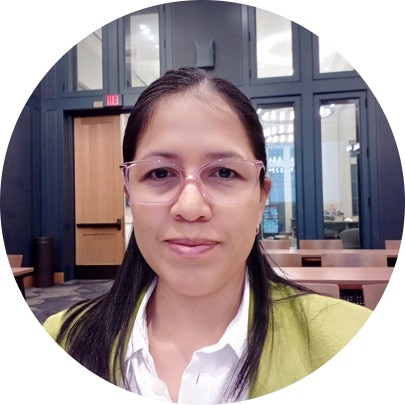
Teresa I. Flores is a lawyer who graduated from the Santo Toribio de Mogrovejo Catholic University, Peru, with a Diploma in Religious Studies from the Pontificia Universidad Católica de Chile. She is the director of the Observatory of Religious Freedom in Latin America and a member of the Latin American Consortium of Religious Freedom, with experience in research and the study of religious freedom in the region. She has given lectures on issues related to hostilities against the right to religious freedom in different academic and political forums, with publications about those topics.
Recommended Citation
Flores, Teresa. “Regulation of FoRB Rights by Organized Crime in Mexico: A Real Although Largely Overlooked Issue.” Canopy Forum, December 12, 2024. https://canopyforum.org/2024/12/12/regulation-of-forb-rights-by-organized-crime-in-mexico-a-real-although-largely-overlooked-issue/
Recent Posts


